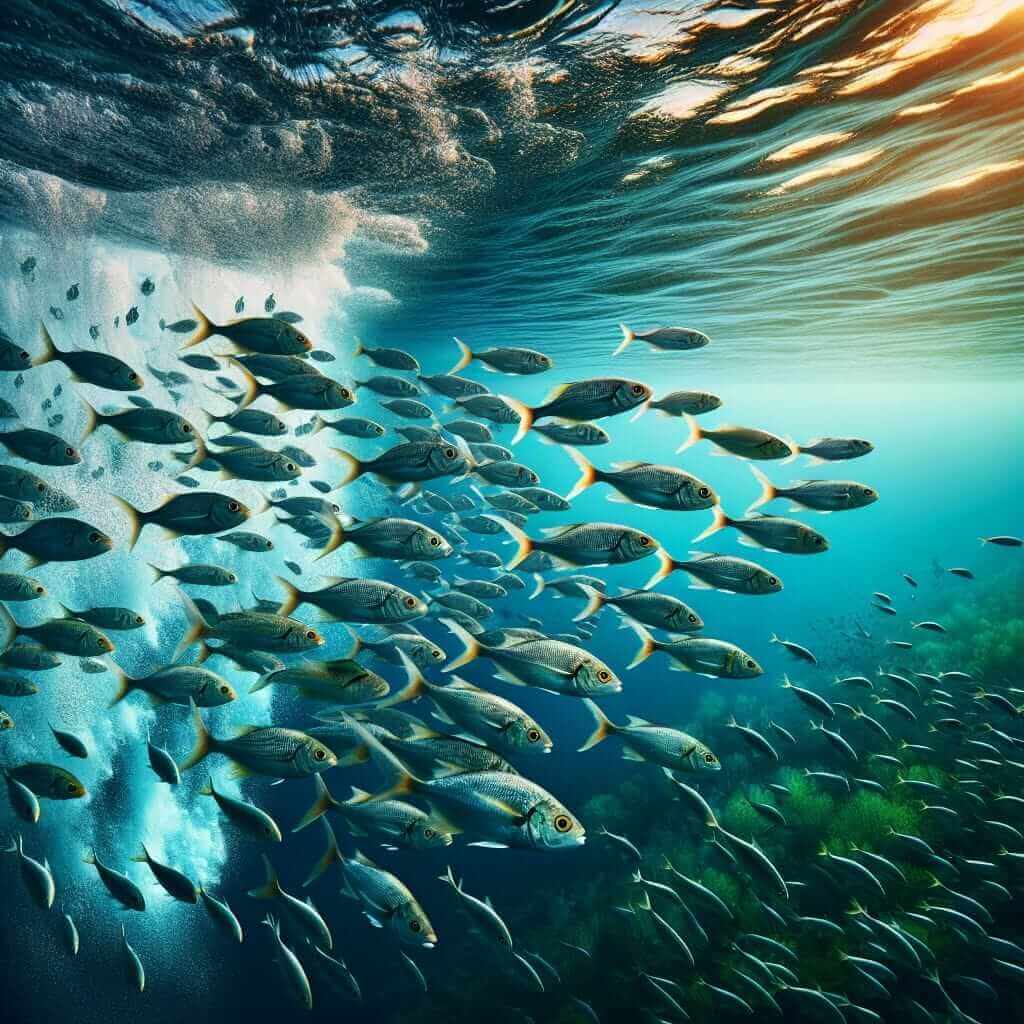The IELTS Reading section consists of 40 questions and three reading passages. The texts range from factual to analytical, reflecting content that may be found in books, magazines, journals, and newspapers. The section tests a variety of reading skills, including skimming, understanding logical argument, identifying writers’ opinions, attitudes, and purposes.
Nội dung bài viết
Over the past few years, the topic of climate change has frequently appeared in the IELTS Reading section. Given the increasing impact of climate change on various environmental elements, this topic remains highly relevant and is likely to reappear in future exams. One specific angle that has been gaining attention is how climate change affects global fish stocks.
Main Content
Reading Passage: Medium Text on Climate Change and Global Fish Stocks
Passage
Climate change poses a significant threat to marine life and the world’s fish stocks. The increasing concentration of greenhouse gases in the atmosphere has led to rising global temperatures, which in turn affect oceanic conditions. This text explores the multifaceted ways in which climate change is impacting fish populations around the globe.
One of the most immediate consequences of higher temperatures is ocean warming. Fish are ectothermic, which means their internal body temperatures are regulated by external conditions. As the waters warm, many fish species are forced to migrate to cooler areas, often towards the poles. This migration disrupts traditional fishing areas and can lead to conflicts over fishing rights among different nations.

In addition to temperature changes, ocean acidification is another concerning byproduct of increased CO2 levels. When CO2 is absorbed by seawater, it forms carbonic acid, which lowers the pH of the water. Acidic waters can have detrimental effects on shell-forming organisms like certain types of plankton, which are a crucial part of the marine food web. The reduction in plankton populations can ripple through the ecosystem, affecting species that rely on them for food, including many commercially important fish species.
Moreover, climate change-induced sea level rise affects coastal habitats, such as mangroves and coral reefs, which serve as breeding and nursery grounds for many fish species. Erosion and habitat loss weaken these vital ecosystems, reducing their capacity to support diverse marine life.
Overfishing, compounded by the stressors of climate change, further exacerbates the decline in global fish stocks. Unsustainable fishing practices deplete fish populations faster than they can reproduce. Coupled with the changing climate, this makes recovery even more challenging.
Researchers emphasize the need for adaptive management strategies that incorporate climate predictions. By understanding the future trajectory of climate impacts, fisheries can implement practices that minimize harm and ensure the sustainability of fish stocks. International collaboration and policy-making are pivotal in this regard, as oceans and fish do not adhere to national boundaries.
Questions
Multiple Choice
-
What is the primary factor causing fish to migrate towards the poles?
a. Ocean warming
b. Ocean acidification
c. Overfishing
d. Sea level rise -
How does ocean acidification primarily affect the marine ecosystem?
a. By raising water temperatures
b. By lowering water pH levels
c. By increasing fishing conflicts
d. By causing coastal erosion
Identifying Information (True/False/Not Given)
-
Fish are endothermic and regulate their own body temperatures.
True/False/Not Given -
Coastal habitats like mangroves and coral reefs are unaffected by climate change.
True/False/Not Given
Matching Information
-
Match the following statements with their corresponding effects:
- Rising global temperatures
- Increased levels of CO2 in seawater
- Sea level rise
a. Acidic waters
b. Migration towards the poles
c. Coastal habitat erosion
Sentence Completion
- Unsustainable fishing practices make it harder for fish populations to ___.
Answer Key
- a
- b
- False
- False
-
- Rising global temperatures: b
- Increased levels of CO2 in seawater: a
- Sea level rise: c
- recover
Common Mistakes
- Misinterpreting the role of fish being ectothermic.
- Confusing sea level rise with ocean acidification impacts.
- Overlooking the global nature of fish migration patterns.
Vocabulary
- Ectothermic (adj) /ˌɛktoʊˈθɜrmɪk/: having body temperature that varies with the environment.
- Acidification (n) /əˌsɪdəˈfɪkeɪʃən/: the process of becoming acidic.
- Migration (n) /maɪˈɡreɪʃən/: seasonal movement of animals from one region to another.
- Ecosystem (n) /ˈikəˌsɪstəm/: a biological community of interacting organisms and their environment.
Grammar Focus
-
Passive Voice: “Fish are forced to migrate…” – When the doer of the action is less important or unknown.
- Structure: Subject + form of “be” + past participle
- Example: “The food was eaten by the cat.”
-
Conditional Sentences: “If CO2 is absorbed by seawater…”
- Structure: If + present simple, present simple
- Example: “If it rains, the ground gets wet.”
Advice for High IELTS Reading Score
- Practice Regularly: Consistent practice helps improve both speed and accuracy.
- Expand Vocabulary: A robust vocabulary aids in understanding complex texts.
- Skim and Scan: Develop the skill to quickly identify key information and details.
- Time Management: Learn to allocate time effectively across all questions.
- Understand the Question Types: Knowing what each question type requires can save valuable time.
By following these tips and regularly practicing with texts like the one provided, you can significantly enhance your reading skills and perform better in your IELTS exam.